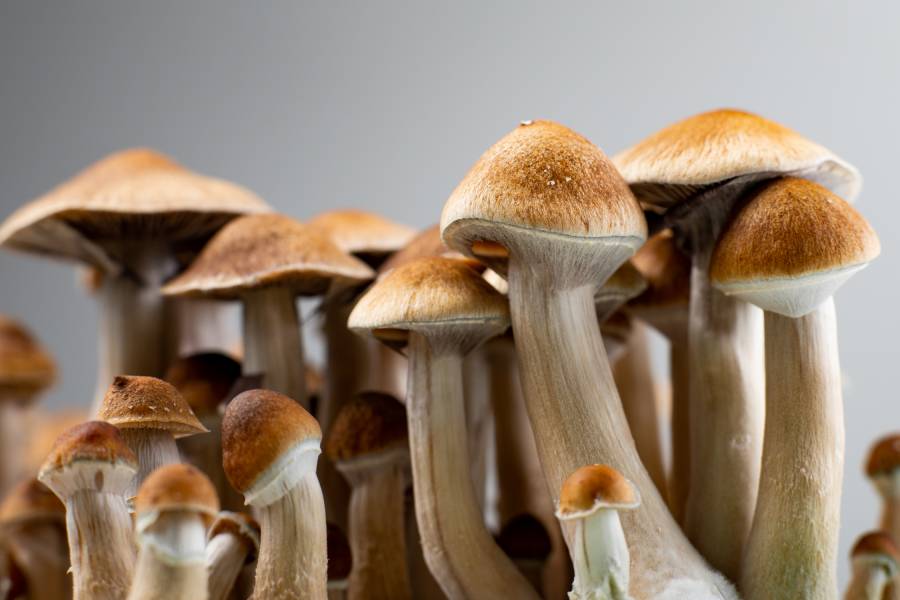MDMA and psilocybin could be approved for medicinal use in Australia
A decision on whether some psychoactive drugs can be used to treat mental illness in Australia will be handed down this week.
The Therapeutic Goods Administration (TGA) is due to release an interim decision on the rescheduling of MDMA and psilocybin – the active ingredient in magic mushrooms – tomorrow.
If approved these drugs would be reclassified from a prohibited substance (schedule 9) to a controlled medicine (schedule 8).
This would clear the way for them to be used in clinical therapy for treatment-resistant depression, post traumatic stress disorder (PTSD) and other complex mental illnesses.
A reclassification would not mean the drugs could be taken home with a patient or change any restrictions on recreational use of the substances.
The campaign to reclassify MDMA and psilocybin has been spearheaded by Mind Medicine Australia (MMA), which submitted the rescheduling applications to the TGA in July 2020.
MMA co-founders Tania De Jong and Peter Hunt believe the change would be “a giant leap forward for innovation in mental health care”.
‘Potential to relieve peoples’ suffering’
Dr Jamie Rickcord was one of the first GPs to receive TGA approval to treat a patient with psilocybin-assisted therapy.
However because Dr Rickcord is based in NSW he is hamstrung by the TGA’s own scheduling of the substances.
He said if Australia approved the drugs for therapeutic use, it would be a huge shift in both perception and practice.

“It changes the conversation, it means that the science and the medical benefit, and the potential to relieve peoples’ suffering has been recognised as being more powerful than the stigma attached to these substances,” he told nine.com.au.
“We totally get that lots of people aren’t ready for it, but the conversation ends if they are schedule 9 compounds.
“It’s not like we are going to start dosing people en masse… It’s done by highly trained empathetic humans who know how to navigate the terrain.”
Another advocate is Chris Barrie AC, who was Chief of the Defence Force until 2002.
Admiral Barrie is the founder of the charity Fearless Outreach, which supports people with PTSD. He is also a MMA Board Director.

He said reclassifying these drugs could give hope to people with treatment-resistant illness who have tried every other avenue.
“Nearly every one of us will have a story about somebody, even themselves, who has post traumatic stress disorder,” he told nine.com.au.
“There are a whole host of people who have been treated inside what I would call a mental system, which is pretty inadequate by most standards, who said ‘I took the pills, I did what I was told and it didn’t work for me’.”
Admiral Barrie emphasised while people he interacts with through his own organisation are empowered with a “toolbox” of coping mechanisms, they are not a cure.
“Things such as exercise, good diets, not drinking too much, meditation, are what we call a toolbox, and an important ingredient is known other people are going through your issues,” he said.
“None of that today can offer a cure, we have no possibility other than potentially with the use of these psychoactive substances, we have no possibility of altering the neural pathways.”








